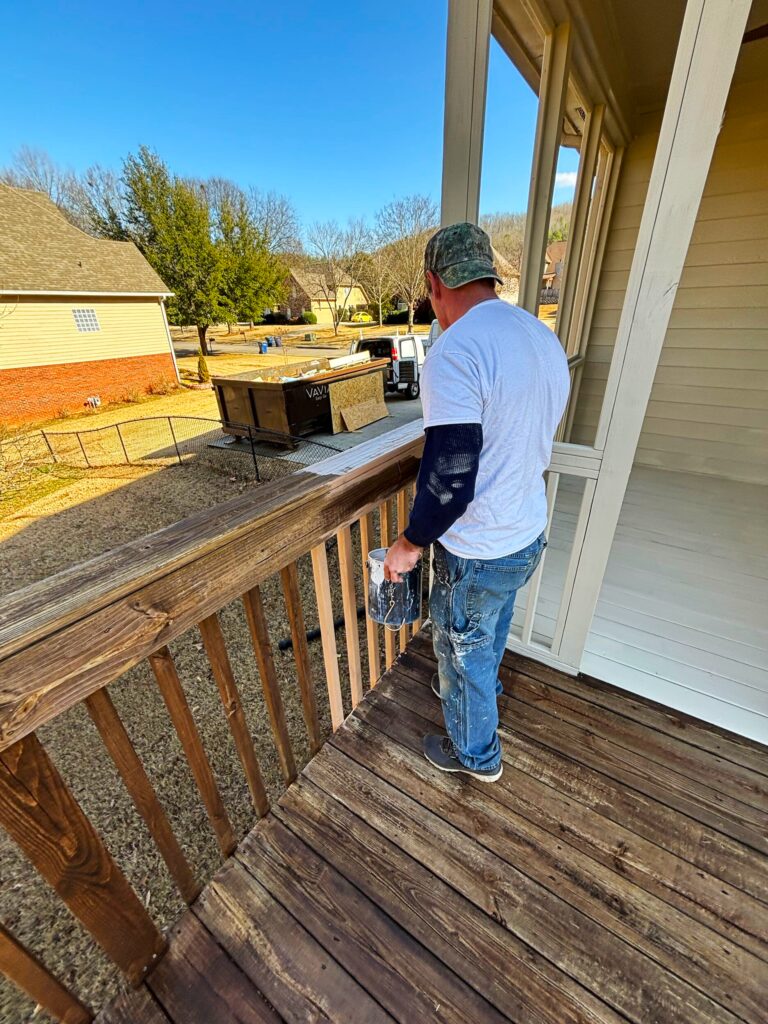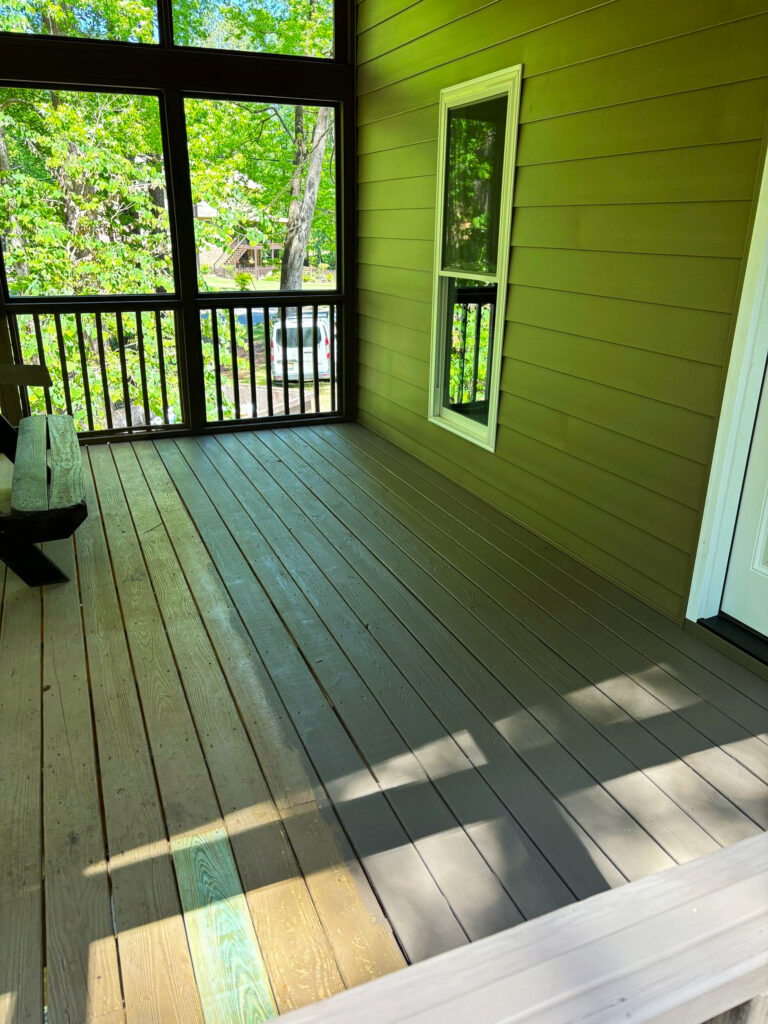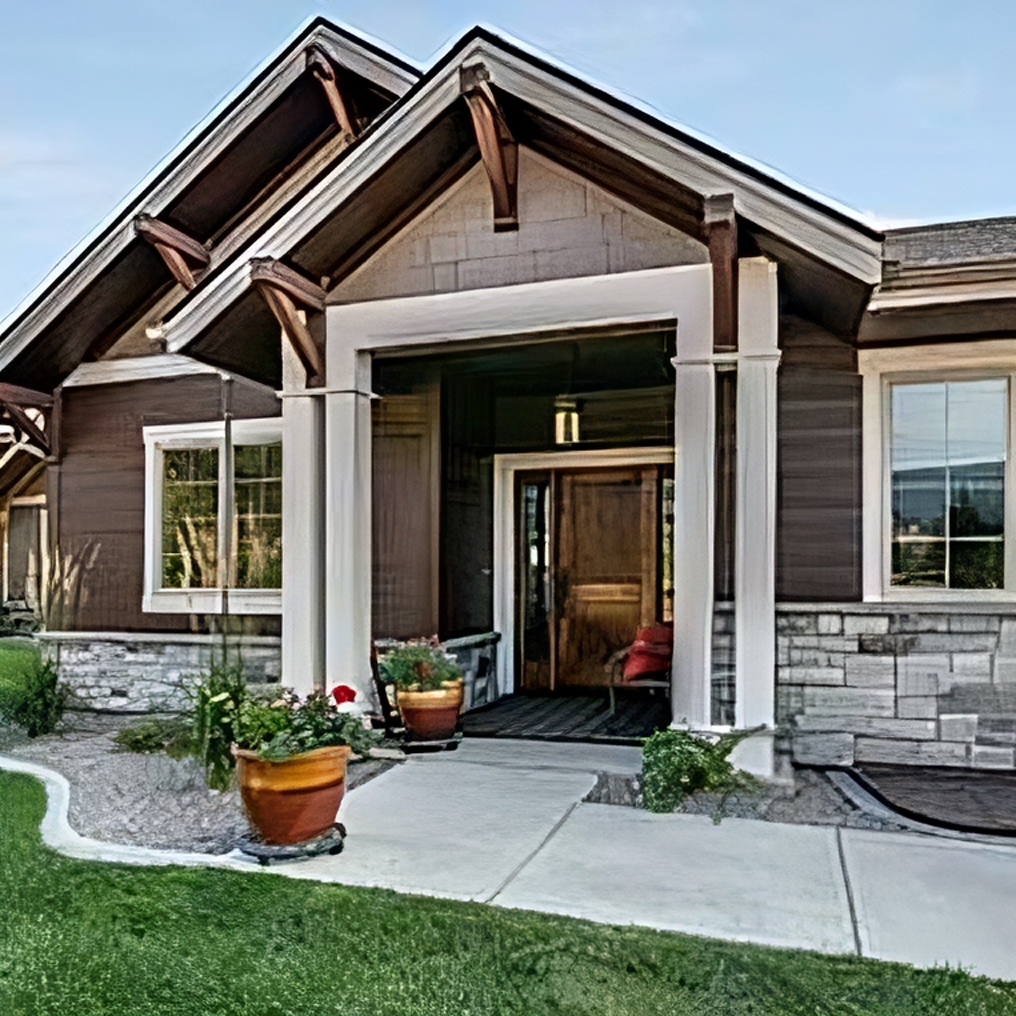At Reliable Design-Build-Remodel, we know that choosing the right decking material can make all the difference in how your outdoor space performs and looks over time. Homeowners across Birmingham and the surrounding areas often ask us about the differences of composite decking vs. PVC decking—two popular, low-maintenance options. To help you make the most informed decision, we’re answering the most frequently asked questions about composite decking vs. PVC decking, drawing from our experience as trusted local remodeling professionals.

Is Composite Decking Better Than PVC?
Both composite and PVC decking offer excellent durability, low maintenance, and attractive aesthetics. However, whether one is “better” than the other really depends on your specific goals and preferences. Composite decking is made from a blend of wood fibers and recycled plastics, giving it a more natural wood-like appearance and feel. Many homeowners love the look and warmth of composite boards. On the other hand, PVC (polyvinyl chloride) decking is 100% synthetic and resists moisture, mold, and insects even better than composite. PVC may perform better in high-moisture areas, but composite tends to be a bit more forgiving underfoot, both in terms of temperature and comfort. Ultimately, your needs—whether that’s appearance, performance, or budget—will determine which is the better option for you.
What Is the Downside of PVC Decking?
While PVC decking has many benefits, it’s important to weigh the potential drawbacks before making your decision. One major downside is its appearance. Though manufacturers have made big strides in mimicking wood grain, PVC can still look more synthetic than composite options, especially up close. PVC decking can also feel a bit more rigid and hollow underfoot, which some homeowners find less pleasant. Another consideration is that PVC, being a plastic-only product, may be more susceptible to expansion and contraction with temperature fluctuations, which can result in gapping or warping if not installed correctly. Lastly, since PVC is a premium material, it often comes with a higher upfront cost compared to other decking options.
Is PVC More Expensive Than Composite?
Yes, PVC decking typically costs more than composite decking. The price difference can vary depending on the brand, quality, and finish of the boards, but on average, PVC decking falls into a higher price tier. That’s largely due to the materials used—PVC is made entirely of plastic resins with advanced engineering to resist stains, scratches, and moisture. These features contribute to its longevity and minimal maintenance requirements, which can make it a worthwhile investment in the long run. However, for many homeowners in Birmingham looking to balance aesthetics, performance, and budget, composite decking offers an attractive middle ground between natural wood and PVC in terms of cost.

What Gets Hotter: PVC or Composite Decking?
This is a big concern for anyone planning to enjoy their deck barefoot in the summer sun. Both PVC and composite decking can heat up under direct sunlight, but in general, PVC tends to get hotter than composite decking. This is because PVC lacks the wood fibers present in composite boards, which help disperse heat a bit more effectively. Some PVC decking brands offer heat-reflective technologies or lighter color options to mitigate this, but it’s still something to consider—especially in sunny Alabama weather. If keeping your deck cooler is a top priority, composite may offer a more comfortable surface for bare feet during our hot summer months.
Is PVC Decking Slippery When Wet?
Slip resistance is an important safety factor, particularly around pools or in areas prone to rain. PVC decking can be slippery when wet, depending on the brand and the surface texture. However, many modern PVC decking products are manufactured with slip-resistant finishes to improve traction. Still, composite decking often has a more wood-like texture, which can provide slightly better grip underfoot. At Reliable Design-Build-Remodel, we always recommend discussing slip-resistance needs during the design phase so we can help you choose the right product for your family’s safety and comfort.
Why Is PVC Decking So Expensive?
PVC decking is considered a premium outdoor product, and its price reflects the benefits it offers. The manufacturing process for PVC boards involves high-performance plastic resins and advanced engineering that make the boards resistant to rot, mildew, moisture, and fading. Additionally, PVC decking is extremely low-maintenance—it never needs staining, sealing, or painting, which can save you time and money over the life of your deck. That long-term durability and minimal upkeep often justifies the higher price for homeowners looking for a “set it and forget it” solution. You’re essentially paying more upfront for peace of mind and fewer maintenance headaches down the road.

At Reliable Design-Build-Remodel, we’re proud to serve Birmingham and the surrounding communities with honest advice and high-quality craftsmanship. When it comes to outdoor living, we take your lifestyle, design preferences, and budget into account to recommend the best decking solution—whether that’s composite, PVC, or another option entirely.
Reliable Design-Build-Remodel is a full service general construction firm and remodeling contractor operating in the Birmingham metro and Jefferson and Shelby County areas and surrounding communities, including Birmingham, Helena, Chelsea, Mountain Brook, Hoover, Homewood, Montevallo, Alabaster, Vestavia Hills, and Pelham, with over 30 years of servicing our valued clients. Offering full service suite of general remodeling, design and build services. Our specialties include bathroom remodeling, kitchen remodeling, exterior renovations, interior renovations, painting, and more!
Visit us at reliablerem.com, and like and follow us on Facebook and Instagram!















